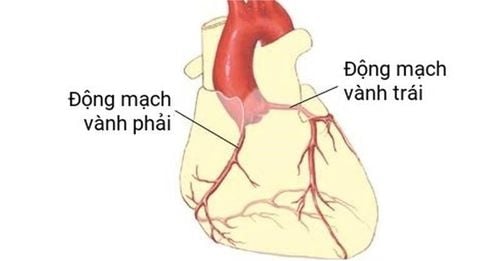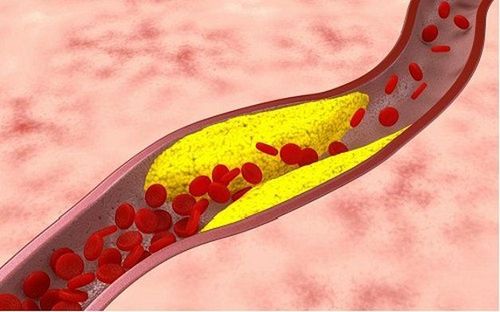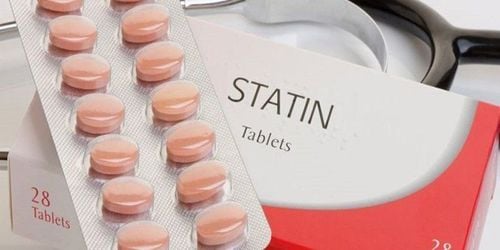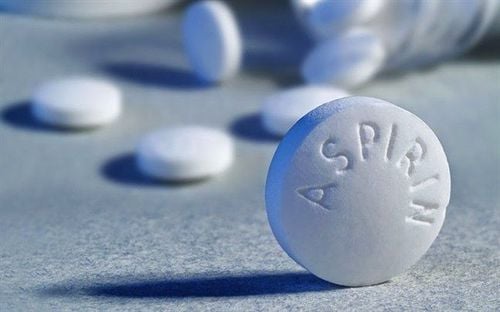This is an automatically translated article.
The article is professionally consulted by Doctor II Nguyen Quoc Viet - Department of Medical Examination & Internal Medicine - Vinmec Da Nang International General Hospital
Myocardial infarction usually occurs when the atherosclerotic plaque ruptures, forming a blood clot that completely blocks the coronary artery. A heart attack occurs suddenly, is unpredictable and can be life-threatening. Therefore, first aid for myocardial infarction is extremely important to help patients overcome the immediate danger.
1. Signs of acute myocardial infarction
According to a study at the University of Arkansas - USA: 95% of heart attack survivors had warning signs weeks, even months before, but were subjective, ignored or It is possible that the patient himself does not know the signs of an impending heart attack. Here are some warning signs of a heart attack:Angina This is a dangerous sign, some people will feel like a heavy object is pressing on their chest or someone's hand is squeezed take the heart, while others feel a sharp, burning pain like a needle... The pain will appear in the middle of the chest or left side of the chest, it can spread to the neck, jaw, shoulder, left arm or even hands for about a few minutes then disappear and come back.
Fatigue 100% of patients experience repetitive fatigue that has not been experienced before for several days before the onset of a heart attack.
Dyspnea on exertion Dyspnea, which occurs first with exertion and then at rest, may occur before or at the same time as angina.
Nausea, vomiting, indigestion, heartburn

Dizziness, lightheadedness Feeling the need to defecate Cold sweats Sweating Excessive anxiety... Before the danger level of a heart attack, the patient experiences pain when experiencing pain. Angina needs to be quickly taken the patient to the hospital for emergency treatment support. However, while waiting for an ambulance, the patient's family should have a temporary myocardial infarction first aid so that the patient can overcome the emergency and preserve his life.
Trắc nghiệm: Huyết áp của bạn có đang thực sự tốt?
Huyết áp cao hay thấp đều ảnh hưởng đến tình trạng sức khỏe con người. Để biết tình trạng huyết áp của bạn có thực sự tốt không, hãy làm bài trắc nghiệm sau đây để đánh giá.2. First aid for a heart attack at home
In myocardial infarction, time is the most important factor determining the patient's life. The most effective time to administer first aid for a heart attack is within two hours of the onset of angina. Here is a simple way to give first aid for a heart attack that everyone should know:2.1 For the patient himself
Must stop all work immediately, sit and rest or lie down in a half-sitting position. knees, lying 75 degrees off the ground). Relax your shoulders and arms, close your face and breathe gently through your nose, do not try to take a deep breath, do not hold your breath to avoid stress and fatigue of the heart. Take off outerwear, widen scarves, ties (if any). Take a dose of an angina medication prescribed by your doctor. In the event that medication is available, should immediately use Nitroglycerin sublingual tablets or spray twice under the tongue as Nitroglycerin spray while waiting for an ambulance. If after 5 minutes the chest pain is still not relieved, take another dose. If the patient is given aspirin by the doctor (an antiplatelet drug), the patient can chew an aspirin tablet or drink it in effervescent form to prevent blood clots and quickly bring to the doctor for immediate treatment. , should not be more than 15 minutes. Have someone call an ambulance or have them take you to the nearest hospital. 2.2 To the patient's relatives
When observing that the patient is awake, let the patient lie in a semi-sitting position in an open space, gently reassure, avoid talking loudly or asking too much because of this can make the patient feel stressed. If the patient has been prescribed aspirin or nitroglycerin... by their doctor's prescription or pre-prescribed emergency medicine, give them the medication as directed. If the patient is unconscious, it can be done in 2 ways:
Extra-thoracic chest compressions

CPR Place the patient in a well-ventilated area, loosen clothes, check for foreign bodies in the mouth, then raise the neck so that the head is slightly tilted back. Then cover the patient's nose and use his mouth to take breath and blow into the patient's mouth several times.
However, it is important to note that you should only perform these first aid techniques if you are familiar with the technique and have been trained in the practice of these techniques.
With areas near Vinmec Health System hospitals that can immediately transfer patients to Vinmec hospital, the hospital always prepares adequate human resources to deal with food poisoning and prevent further poisoning. .
Vinmec International Hospital's Emergency Resuscitation Department operates 24/24 on all days of the week, including Saturdays and Sundays as well as holidays of the year. With diagnostic imaging equipment and Modern testing, especially specialized heavy-duty ambulances with a full range of supporting machines for severe patients traveling long distances in the subclinical field as well as in transporting serious patients on demand. . The team of emergency doctors and nurses at the Emergency and Resuscitation Department of Vinmec International General Hospital are intensively and professionally trained, able to receive and handle urgent cases of patients, and at the same time always has coordinated with all specialties of the Hospital in a methodical and quick manner. At Vinmec Emergency and Resuscitation Department, patients will be examined, diagnosed, quickly and accurately treated and treated according to the priority of emergency until the critical condition is over.
Please dial HOTLINE for more information or register for an appointment HERE. Download MyVinmec app to make appointments faster and to manage your bookings easily.














